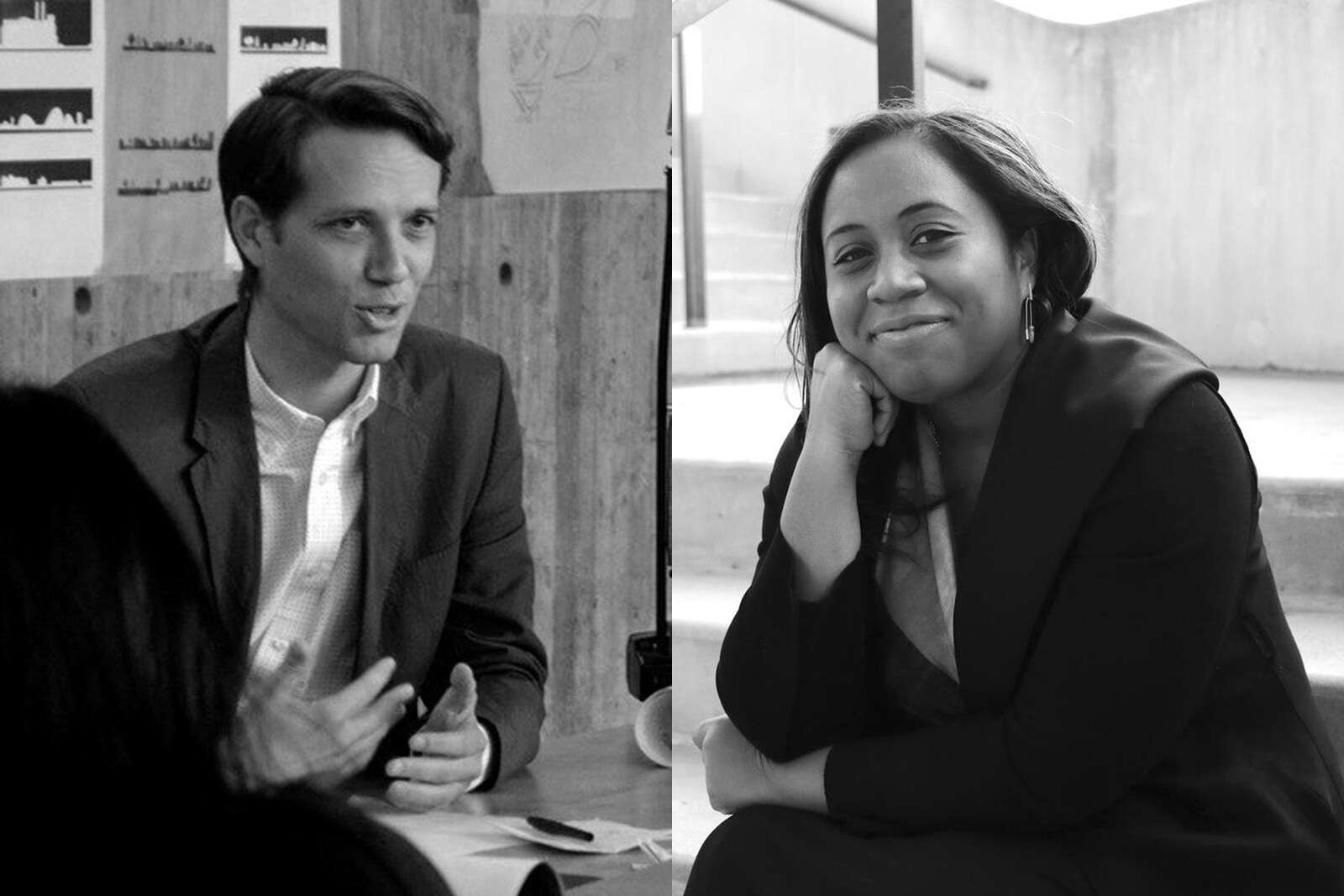New tenure-track faculty
180 York Street
New Haven, CT 06511
USA
The Yale School of Architecture is delighted to announce the appointment of two tenure-track faculty members, Anthony Acciavatti and Mae-ling Lokko. Acciavatti has been appointed the inaugural Diana Balmori Assistant Professor after a three-year term as Daniel Rose (1951) Visiting Assistant Professor at the School. Mae-ling Lokko joins Yale as an Assistant Professor from Rensselaer Polytechnic Institute, where she served as the Director of the Building Sciences Program as well as Assistant Professor at the School of Architecture and Center for Architecture, Science and Ecology (CASE).
“Anthony and Mae-ling bring critical insights to the teaching of ecologies of the built environment, the history of agrarian and urban landscapes, and material sciences, greatly expanding the School’s capacities in those research areas,” says Dean Deborah Berke. “I am very much looking forward to working with them in the coming years, and I know students are as well.”
Anthony Acciavatti works at the intersection of architecture, landscape, and the history of science and technology. He is interested in experimental forms of scholarship, pedagogy, and design afforded by humanistic inquiry. His most recent book, Ganges Water Machine: Designing New India’s Ancient River (Applied Research & Design, 2015), is the first comprehensive mapping and environmental history of the Ganges River Basin in over half a century. In 2016 Ganges Water Machine was awarded the John Brinckerhoff Jackson Book Prize. Along with the book, his work on the Ganges is an internationally traveling exhibition with recent shows in New York, Mumbai, New Delhi, and included in the XXII Milan Triennial.
Acciavatti is now completing the manuscript of second book, Republic of Villages, under contract with Yale University Press, which looks at the history of environmental design and the sciences in South Asia since the late-nineteenth century. Grants from the National Science Foundation and Graham Foundation for Advanced Studies in the Fine Arts supported this work.
Acciavatti trained in architecture at the Rhode Island School of Design and Harvard University, in the history of science at Princeton University, and as a Fulbright Scholar in the department of geography and town and country planning at the University of Allahabad. His work has been supported by the Program in Agrarian Studies at Yale University as well as grants and fellowships from the National Science Foundation, Ford Foundation, Mellon Foundation, Harvard University, Princeton University, and the Graham Foundation for Advanced Studies in the Fine Arts. Prior to his most recent appointment, he was the Daniel Rose (1951) Visiting Assistant Professor in Urban Studies (2019–22) at Yale, and he has taught at the Rhode Island School of Design, Columbia University, and Princeton University. In 2022, Acciavatti received the King-Lui Wu Teaching Award, selected by students at the Yale School of Architecture.
He is a principal of Somatic Collaborative in New York and a founding director of Manifest Institute, which publishes Manifest: A Journal of the Americas.
Mae-ling Lokko is an architectural scientist, designer and educator from Ghana and the Philippines who works with agrowaste and renewable biobased materials. Through her work, Lokko explores themes of “generative justice” through the development of new models of distributed production and collaboration. In her artistic and design practice, her work deconstructs historical narratives and practices of extraction through the design of new material vocabularies and the prototpying of participatory models of production.
Lokko’s research focuses on ecological design, integrated material life cycle design and the broad development and evaluation of renewable biobased materials. She has previously taught at Cooper Union and Rensselaer Polytechnic Institute, where she served as the Director of the Building Sciences Program as well as Assistant Professor at the School of Architecture and CASE. Lokko holds a PhD and Master of Science in Architectural Science from CASE at RPI, and a BA from Tufts University.
She is the founder of Willow Technologies, Ltd. based in Accra, Ghana that upcycles agrowaste into affordable biobased building materials and for water quality treatment applications. Her work was nominated for the Visible Award 2019, Royal Academy Dorfman Award 2020 and she was a finalist for the Hublot Design Prize 2019. Her current research is funded by the United National Environment Program and the SOM Foundation Research Prize, and in the recent past by the British Council, MIT’s Global Architectural History Teaching Collaborative, the Luma Foundation, Housing the Human 2019 and the NYSERDA-NEXUS Clean Energy Accelerator Program.
Lokko’s recent works have been exhibited at the Stedelijk Museum, Netherlands; 2022 Tallinn Architecture Biennial, Estonia; Serralves Museum, Portugal; Museum of the Future, Dubai; Z33 House for Contemporary Art, Design and Architecture, Belgium; Z33 House for Contemporary Art, Design and Architecture, Belgium; Sonsbeek Biennial, Netherlands; Triennale Milano, Italy, Somerset House, London; Radialsystem, Berlin, Luma Foundation, Arles, 4th Istanbul Design Biennial, Rhode Island School of Design and at the Royal Institute of British Architects-North.

